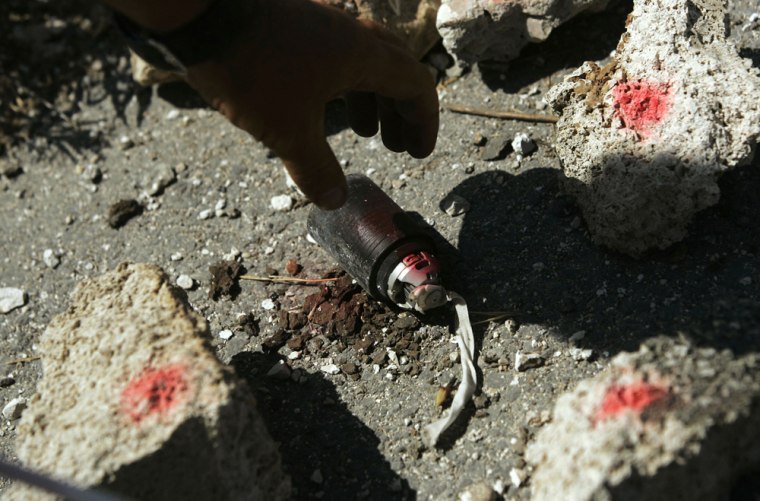The U.N. humanitarian chief on Wednesday accused Israel of “shocking” and “completely immoral” behavior for dropping large numbers of cluster bombs on Lebanon when a cease-fire in its war with Hezbollah was in sight.
Jan Egeland said Israel had either made a “terribly wrong decision” or had “started thinking afterwards.” The remarks were unusually harsh even for Egeland, who often ignores an unwritten rule that U.N. officials should not criticize member states too severely.
“What’s shocking and I would say, to me, completely immoral is that 90 percent of the cluster bomb strikes occurred in the last 72 hours of the conflict, when we knew there would be a resolution,” Jan Egeland said at a news conference.
The spokeswoman for Israel’s mission to the U.N., Anat Friedman, said she had no immediate comment on Egeland’s remarks. In Israel, the Israeli army referred to its earlier statement that all the weapons it uses “are legal under international law and their use conforms with international standards.”
An unusual number of cluster bombs used in the war did not detonate on impact, possibly because they were old, Egeland said. Usually 10 percent to 15 percent of the bomblets fail to explode immediately. According to some estimates, up to 70 percent of the Israeli bomblets failed to explode on impact.
Civilians returning to their homes in southern Lebanon are experiencing “massive problems,” as a result of these unexploded munitions, Egeland said.
‘Every day people are maimed’
Approximately 250,000 Lebanese, of the 1 million displaced, cannot move back into their homes, many because of unexploded munitions.
“Every day people are maimed, wounded and are killed by these ordnance,” Egeland said.
U.N. and human rights organizations said Wednesday that 13 people, including three children, had been killed between the Aug. 14 cease-fire and Tuesday, and 46 people had been wounded.
“Every day we have to revise our count of what the scope of the problem is,” said Chris Clark, program manager of the U.N. Mine Action Coordination Center in southern Lebanon. “We just don’t know how big the problem is, only that it is huge at the moment and getting bigger every day.”
Human Rights Watch researchers have said the density of cluster bombs in southern Lebanon was higher than in any place they had seen.
Talks with U.S. urged
Egeland urged countries that sold cluster bombs to the Israelis, including the United States, to have “serious talks with Israel.”
The U.N. Mine Action Coordination Center, which has so far assessed 85 percent of the bombed areas in Lebanon, has identified 379 bomb strike areas that are contaminated with as many as 100,000 unexploded bomblets.
Egeland said about 750,000 people had managed to return home, which he called “remarkable.”
Egeland will travel to Stockholm on Thursday to launch a revised humanitarian appeal for Lebanon.
The appeal has raised about $90 million, which Egeland indicated would be enough for the initial, emergency response. The Lebanese government will launch its own appeal for several hundred million dollars to continue the rebuilding.
